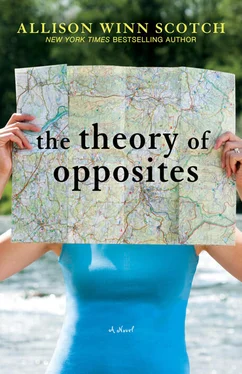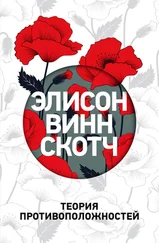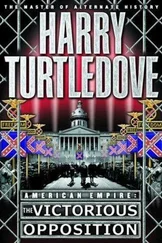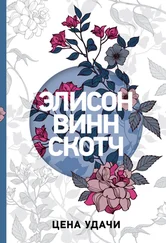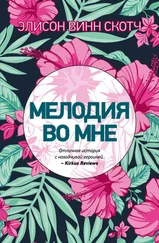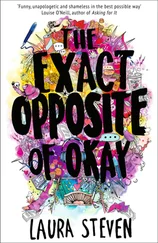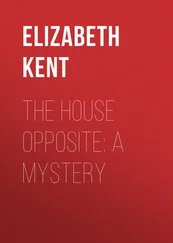“Neither of us is dying,” my mother says, though she fiddles with her fork and doesn’t meet either of our eyes.
My dad offers: “Let’s order dinner. I’m starving. I’ve been on CNN all day and their green room is for amateurs.”
“That was very adept,” Raina says. “That humblebrag you just pulled off.”
“A what?” My mother looks confused.
“Forget it,” Raina says.
“Don’t talk to me that way, young lady,” my dad snaps. “Whatever ‘humblebrag’ may mean, I do not like your tone.” He raises and lowers his hands to form air quotes, which strikes me as really odd, like he’s trying to be a teenager or something, but then I reconsider. My dad was happy to put quotes around just about anything: it was his way of rewriting someone else’s story.
He presses on: “There was an earthquake in Burma today, and a lot of people lost their lives, and I was only trying to lend my perspective on air. They had me on for the entire span of the news rush.”
“I know, Dad,” Raina says, mostly just to placate him. And since the waiter has now poured the wine, she reaches for it and rather than speak further, takes a generous sip.
I smile a crooked, partially-lobotomized smile. I’d forgotten how feisty Raina could be; how she refused to accept my father’s prophesies, how she’d found a way to discover her own voice, her own perspective, even if that meant drowning herself in law school and work and children and then more children and charity and Escalades and a live-in nanny who now evidently got Saturday nights off as Raina searched for that ever-elusive thing that all moms search for: balance. Oh. And also, a Xanax dependency. But still, she didn’t take shit from my dad, and that might have qualified her for a very unique club of one. Well, and the Nobel Review Board, if you count those five gentlemen, which surely my dad does not. (And Punjab Sharma too, of course.)
“Listen, if one of you is dying, please just tell us now,” I say, my eyelids feeling unusually heavy, my mind feeling unusually light. It’s not so bad, this floating. I think about Theodore, and how maybe I should write him back. I wanted to trust myself enough to, but then there was that tricky part about not trusting myself to at all. I was always doubting everything, even though I was also always placing my faith in the meant-to-be. My brain was at constant odds with itself, a bubble of confusion fostered by my father himself, and then nurtured by my paralysis in making any defiant moves against his philosophies.
Theodore knew this because he knew me as well as anyone had, though who I was at twenty-five and who I was now were hopefully different enough that he couldn’t actually know me that well anymore — it had been seven years. A lifetime. Or part of a dog’s lifetime anyway.
I close my eyes and listen to the clinking of forks against plates, the waft of conversation, the piano dimly floating out of the restaurant speakers. And then I consider that I may have gotten married and worked my way up the agency and found a different apartment and become a step-aunt and peed on a bunch of pregnancy tests, but really, I’m sitting here with my parents at the same restaurant we always sit at, and my sister is bickering with them, and my dad is the same old megalo-maniac, and my mother is enabling it all, and Shilla (the name is growing on me) is perhaps very acutely imploding. And then I realize nothing has really shifted too much at all. That who I was at twenty-five is actually very akin to who I am now.
My dad always says that we can’t change, and by God, if my thirty-two years are any indication, he’s right. Jesus.
I open my eyes in time to see my mom settle her napkin in her lap and move it just so. “Let’s just enjoy the sea bass,” she says.
I am happy to just enjoy the sea bass if I’m being honest, but Raina coils up her face like a corkscrew, and since she has armed me with this unusually pleasant sense of nirvana, I feel the need to stand strong with her.
So I say: “We can’t enjoy the sea bass if one of you is dying.”
“If one of us were dying, I would hope that you wouldn’t treat it as lightly as you are now,” my dad says. “Even though” — because he can’t help himself — “it would be whatever was meant to be. If either your mother or I were to die unexpectedly, I hope you know that I wouldn’t want a big to-do.”
A muscle in Raina’s jaw flexes, and she stretches her neck to one side, the pop! audible across the table.
“So what it is?” she says. “Because once we know, then I certainly will enjoy the sea bass.”
My mother clears her throat and purses her lips once, then twice. She eyes my father but then glances away, and he is no help (of course).
“Okay fine, I’ll just come out with it.” My mom reaches for her wine before continuing. “Your father has had…a difficult year. With…the Nobel…”
“Dad, you realize there are worse things in the world than being on the short list for a Nobel, right?” Raina says.
“Well, it was very devastating for him,” my mom interjects. “And then there was that unfortunate restraining order.”
“Punjab had no right! No claim!” my father cries, a shard of bread flying from his mouth and landing unceremoniously in the olive oil on my own bread plate. My mouth curls down, and I inch the plate toward the center of the table.
“Well, with all of that happening, your father came to some decisions. And I don’t necessarily agree with them, but…well…you know.” My mom waves her hands, as if this explains it. Well…you know. It does explain it though, as good enough shorthand as any in this family.
My dad dislodges the mucus in his windpipe, then announces:
“What she is trying to say is that I intend on taking a lover.”
At this, Raina spits her wine back into her glass. And though my head is cloudy and buzzy and thick, even I sense a widening of my eyes, a slackening in my face.
“Jesus, Dad!” Raina folds her hands over her face and drops her head. “Honestly! Just…Jesus Christ.”
“I’m glad I didn’t order the sea bass,” I say.
“Well girls, let’s be fair about this,” my mom suggests, like she needs to defend him, like her staying with him for four decades hasn’t been the greatest gift she could give him. “Your dad and I have been married for a very long time, and it’s normal to consider other options. And well, he came to me and presented this in a reasonable way, and now I’m thinking that I might just go get a lover too!”
The waiter has arrived to take our order, but stops short and then turns quickly to a neighboring table.
“Mom!” Raina snaps. “Oh my God!”
“Honey, you’re almost forty. I should be able to tell you the truth.”
Raina fishes in her purse for her phone.
“I should check on the kids. Excuse me. And I’m not even close to forty.”
She stands abruptly, and we all fall silent watching her flee.
“She always was a rule follower, Willa. Not like you,” my dad says, his eyes still on her until she disappears out the lobby. What he means is: she never quite came around to my way of thinking, which also means: she never loved me as much as you did.
“Oh please. Shut up.” I can’t even bear it.
My father’s chin remains stoic but I can see his pulse throb in his neck.
“Willa.” My mom moves her hand over mine.
“Mom,” I say, my eyes suddenly full.
She leans in close enough that I can smell her Chanel perfume, a memory of my childhood, of complicated nostalgia, and then she says: “Don’t be sad. If anything, after forty years, it’s a bit of a relief.”
Читать дальше
